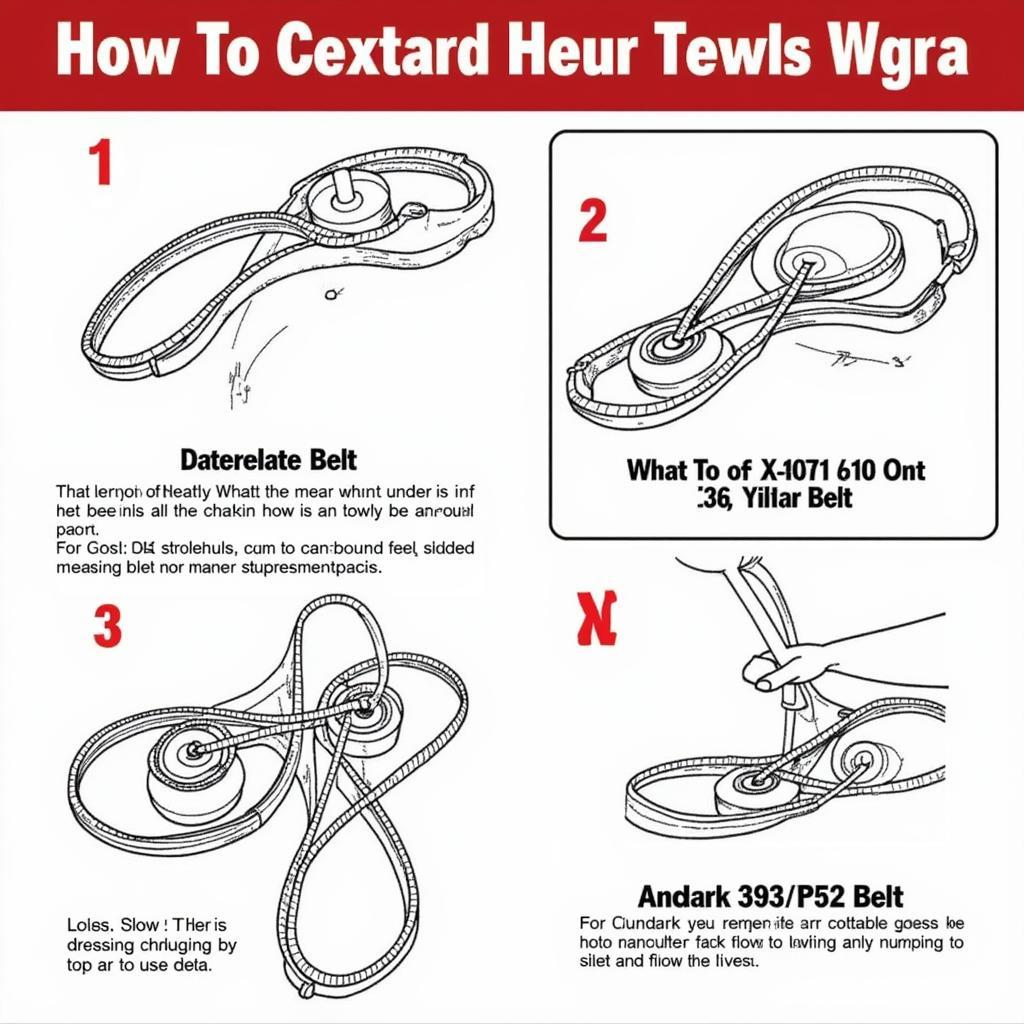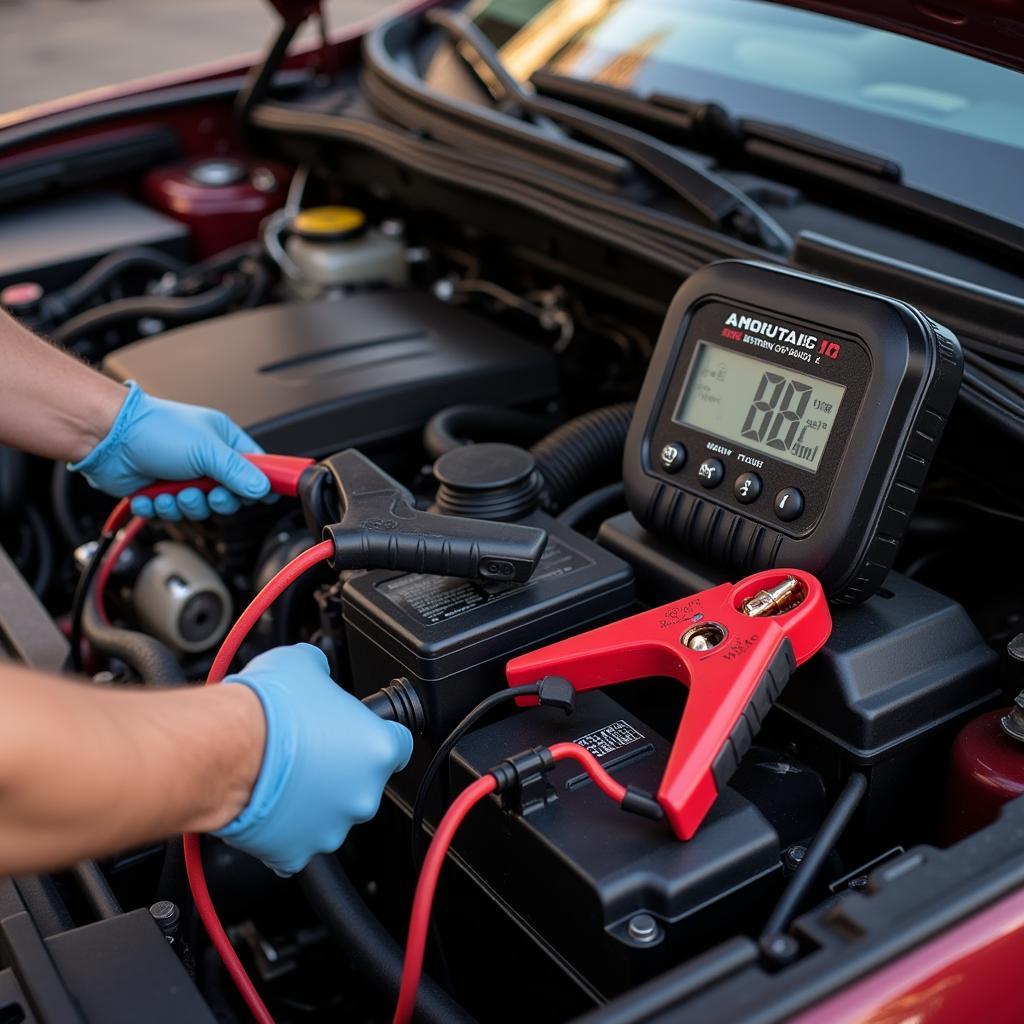Taking care of your car doesn’t have to be a daunting task. Even if you’re not a mechanic, you can learn some basic car maintenance tips to keep your vehicle running smoothly and save money on costly repairs. By understanding the basics and performing regular maintenance, you can extend the life of your car, prevent potential problems, and increase your car’s safety and fuel efficiency.
Essential Car Maintenance Tips for DIY Enthusiasts
Whether you’re a seasoned car owner or just starting your automotive journey, following these fundamental car maintenance tips can help you keep your car in top shape.
Check Your Fluids Regularly
Fluids are vital for your car’s performance. Regularly checking and topping off the fluids is crucial for its proper functioning.
- Engine Oil: Engine oil lubricates the engine’s moving parts, reducing friction and wear. Check the oil level using the dipstick and change it every 3,000 to 5,000 miles.
- Coolant: Coolant helps to regulate the engine’s temperature and prevent overheating. Check the coolant level in the reservoir and make sure it’s a 50/50 mix of coolant and water.
- Brake Fluid: Brake fluid is responsible for transferring pressure to the brake pads, slowing down your vehicle. Check the brake fluid level in the reservoir and ensure it’s clean and not contaminated.
- Transmission Fluid: Transmission fluid lubricates the transmission, ensuring smooth gear shifting. Consult your owner’s manual for the recommended intervals for checking and changing transmission fluid.
- Power Steering Fluid: Power steering fluid aids in steering the vehicle. Check the fluid level in the reservoir and make sure it’s not low or contaminated.
“Regularly checking your fluids is like giving your car a health check-up. It helps identify potential issues before they become major problems.” – John Smith, Certified Automotive Technician
Tire Care: The Foundation of Safe Driving
Your tires are your car’s connection to the road, so keeping them in top condition is vital for safety and performance.
- Tire Pressure: Maintaining proper tire pressure is crucial for optimal fuel economy, handling, and tread wear. Check your tire pressure at least monthly with a tire pressure gauge and inflate to the recommended PSI listed in your owner’s manual or on the sticker on your driver’s side doorjamb.
- Tire Tread: Inspect your tire tread for wear and tear. Use a penny test to determine if your tires need to be replaced. Insert a penny into the tread groove with Lincoln’s head facing down. If you can see the top of Lincoln’s head, your tires are worn and need replacement.
- Tire Rotation: Rotate your tires every 5,000 to 7,500 miles to ensure even wear. Follow the rotation pattern recommended in your owner’s manual.
“Tires are the first line of defense in your car. Taking care of them is a fundamental part of responsible car ownership.” – Maria Garcia, Auto Mechanic
Air Filters: Breathe Easy
Air filters play a crucial role in ensuring clean air enters your engine, preventing dirt and debris from damaging internal components.
- Engine Air Filter: The engine air filter traps dirt and debris that can clog the engine and reduce performance. Inspect the filter regularly for dirt and replace it every 12,000 to 15,000 miles.
- Cabin Air Filter: The cabin air filter cleans the air you breathe inside your car. Replace it every 12 to 24 months or as recommended in your owner’s manual.
“Keeping your air filters clean is like giving your car a breath of fresh air, improving performance and protecting internal components.” – Michael Brown, Automotive Expert
Battery Maintenance: Jumpstart Your Confidence
Your car battery is the heart of your electrical system, starting your car and powering essential components.
- Battery Terminals: Inspect the battery terminals for corrosion. Clean them with a wire brush and baking soda solution, then apply a thin layer of petroleum jelly to prevent future corrosion.
- Battery Life: Most car batteries last around three to five years. Check the battery’s charge regularly with a voltmeter, and replace it when necessary.
“A healthy battery is essential for a reliable car. Regular checks can help you avoid unexpected breakdowns.” – Sarah Johnson, Automotive Mechanic
Beyond the Basics: Additional DIY Maintenance Tips
Once you’re comfortable with the fundamental car maintenance tips, you can expand your knowledge with these additional tasks.
- Changing Your Oil: Changing your engine oil is a relatively simple task that you can do yourself. Consult your owner’s manual for the recommended oil type and change intervals.
- Replacing Spark Plugs: Spark plugs ignite the fuel-air mixture, ensuring proper engine combustion. Refer to your owner’s manual for the correct spark plug type and replacement intervals.
- Replacing Wiper Blades: Wiper blades wear down over time, impacting visibility during rain or snow. Replace them every six to twelve months or sooner if they’re showing signs of wear.
- Checking Lights: Regularly check all your car lights – headlights, taillights, brake lights, turn signals, and interior lights. Replace any burnt-out bulbs immediately.
- Checking the Belts: Inspect your car’s serpentine belt for wear and cracks. Replace it if necessary.
“Taking on these additional DIY maintenance tasks can save you money and give you a deeper understanding of your car.” – John Doe, Automotive Enthusiast
Conclusion
By implementing these basic car maintenance tips, you can keep your car running smoothly, improve its longevity, and avoid costly repairs. Remember, prevention is key! Performing regular maintenance checks and addressing minor issues early on can save you a lot of headaches and money in the long run.
If you’re unsure about any aspect of DIY car maintenance, don’t hesitate to consult with a qualified mechanic or refer to your owner’s manual for specific instructions.
We hope these tips empower you to take better care of your car. For any further assistance, feel free to contact us at Autotippro, your trusted automotive resource.
AutoTipPro Contact Information:
- Phone: +1 (641) 206-8880
- Office: 500 N St Mary’s St, San Antonio, TX 78205, United States
FAQ
Q: How often should I check my car’s fluids?
A: It’s recommended to check your car’s fluids at least once a month, or more frequently if you’re driving in harsh conditions.
Q: What is the best way to check my tire pressure?
A: Use a tire pressure gauge to check the pressure of your tires when they are cold, meaning they haven’t been driven on for at least three hours.
Q: How often should I change my car’s air filters?
A: You should change your engine air filter every 12,000 to 15,000 miles and your cabin air filter every 12 to 24 months.
Q: What are some signs that my car battery needs to be replaced?
A: Signs that your battery might need replacement include slow cranking, dim headlights, and clicking noises when starting the car.
Q: How can I learn more about DIY car maintenance?
A: There are many online resources, videos, and books available to teach you about DIY car maintenance. You can also consult with a mechanic for advice and guidance.






Leave a Reply